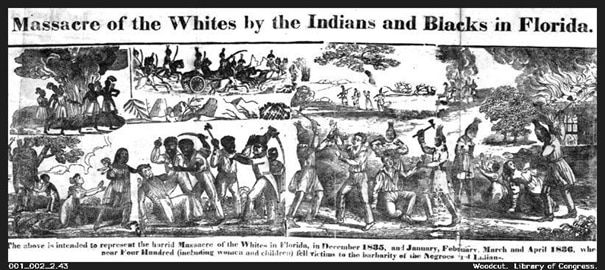Abiaka, known as Sam Jones to the Americans, was a prominent Seminole War Chief born in Miccosukee, Florida near present ay Tallahassee and Monticello, Fl where his descendants still live and survive. His life and leadership were marked by his strong resistance to the U.S. government’s attempts to relocate the Seminole people from their ancestral lands in Florida.
In the early 19th century, tensions between the United States and the Seminole Nation escalated, primarily due to conflicts over land and the Seminoles’ refusal to be forcibly removed to the Indian Territory (present-day Oklahoma). Abiaka emerged as a charismatic and influential leader among the Seminole people during this turbulent time.
He played a significant role in the Seminole Wars, particularly the Second Seminole War (1835-1842), where he led Seminole warriors against U.S. forces. Abiaka employed guerrilla warfare tactics, making it challenging for American troops to capture him or subdue the Seminoles. His strategic leadership and determination contributed to the prolonged resistance of the Seminoles against the U.S. government.
Abiaka’s interactions with the Americans included negotiations, conflicts, and occasional truces, but he remained committed to protecting the Seminole homeland. Despite the immense pressure from U.S. forces, he continued to resist relocation efforts.
Abiaka’s legacy in Seminole history is one of resilience and defiance against forced removal. He is remembered as a symbol of Seminole resistance during a critical period in their history. His legacy lives on not only in the Seminole culture but the bloodline he left behind in his homeland in North Florida .


